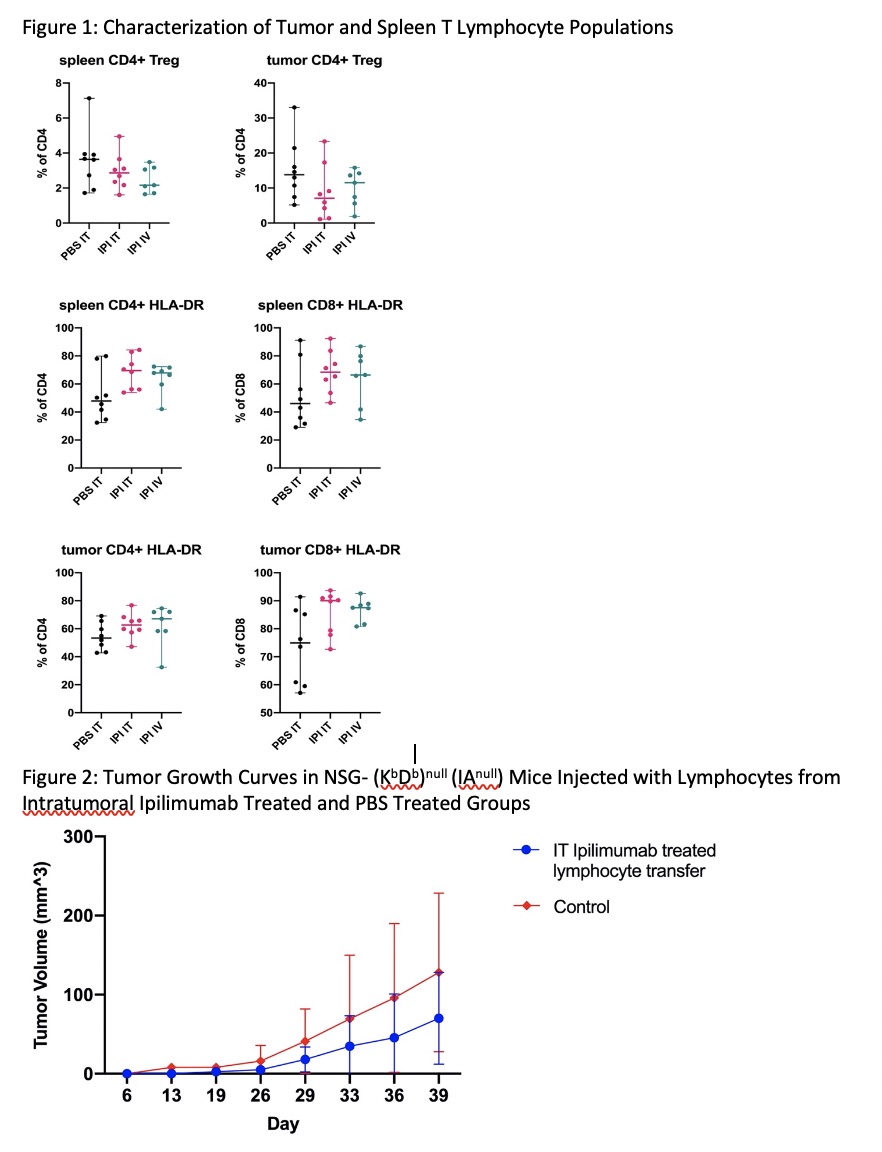A Single Intratumoral Injection of Ipilimumab Induces Changes in T-lymphocytes and Delays Subsequent Tumor Growth
*Hannah Buettner, *Jane Chuprin, *Michael Brehm, Giles Whalen
University of Massachusetts Medical Center, Worcester, MA
OBJECTIVE: We hypothesized that a single neoadjuvant intratumoral injection of ipilimumab could protect against micrometastatic disease via generation of effector memory T-lymphocytes, reducing post-operative tumor recurrence. We aimed to assess T-lymphocyte activity against micrometastatic disease using a humanized mouse model. METHODS: NOD-scid IL2rgnull (NSG) and NSG- (KbDb)null (IAnull) mice were obtained from Jackson Laboratory (Bar Harbor, ME). Animals were maintained using Institutional Animal Care and Use Committee (IACUC) standards. Patient derived xenograft (PDX) melanoma was implanted subcutaneously into NSG mice engrafted with human hematopoetic stem cells (HSC). Once tumor volume exceeded 200 mm3, mice were randomized to treatment with either intratumoral (IT) ipilimumab (10 mg/kg), IV ipilimumab (10 mg/kg), or control (IT PBS). Mice were sacrificed on day 7 post injection; tumor and spleen were analyzed using flow cytometry. Treatment and control group lymphocytes were injected into NSG- (KbDb)null (IAnull) mice intravenously and PDX melanoma was implanted subcutaneously. Analyses were performed using FlowJo (BD, v10.6) and Prism (GraphPad LLC, v 8.4). RESULTS: HSC engrafted NSG mice treated with IT ipilimumab (n=8) and IV ipilimumab (n=7) had decreased intratumoral T-regulatory lymphocytes (CD4+/FoxP3+/CD25+) and increased expression of HLA-DR in splenic CD4+ and CD8+ populations and tumor CD8+ cells compared with control (n=8) (fig. 1). PDX melanoma tumor growth was delayed in mice with lymphocytes transferred from IT ipilumumab treatment group (n=4) compared with control (n=5) (fig. 2). CONCLUSIONS: A single intratumoral injection of ipilimumab induced anti-tumor activity in lymphocytes, suggesting that neoadjuvant intratumoral injection of ipilimumab may promote immune activity against micrometastatic disease. 
Back to 2020 Abstracts
